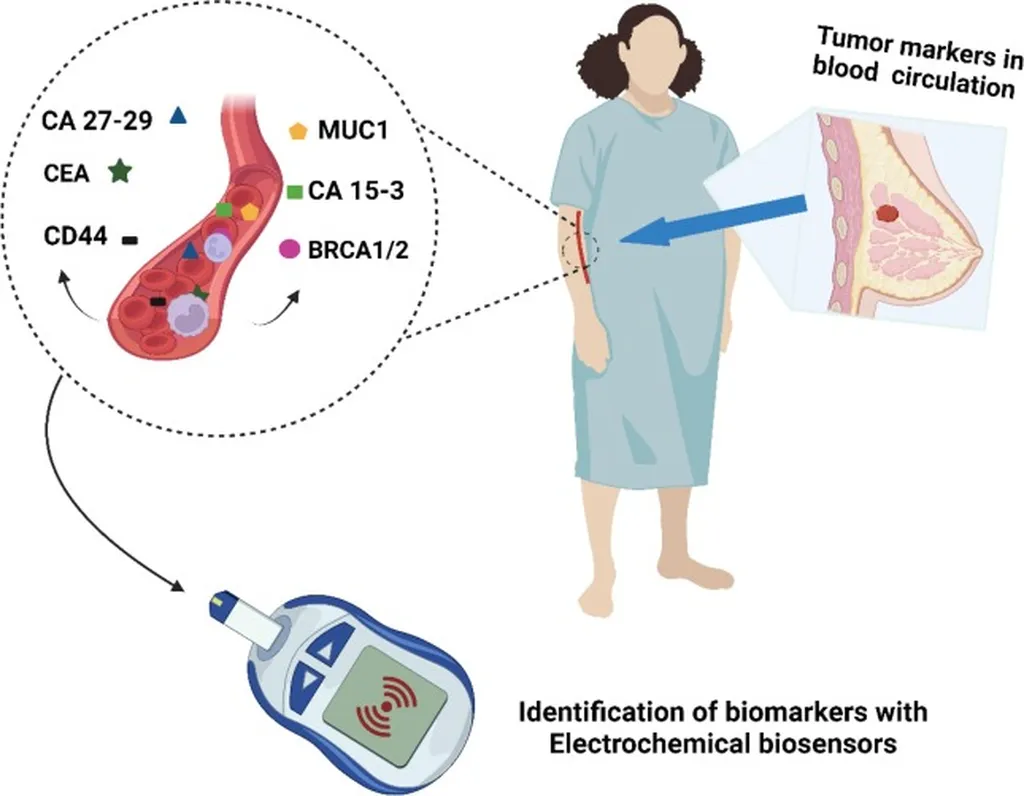In the relentless battle against cancer, early detection remains a critical factor in improving patient outcomes. A recent review published in *Electrochemical Science Advances* (which translates to *Advances in Electrochemical Science*) sheds light on the promising potential of electrochemical biosensors for cancer biomarker detection. Led by Md Mobarok Karim from the Department of Genetic Engineering and Biotechnology at Shahjalal University of Science and Technology in Sylhet, Bangladesh, the research delves into the basic concepts, design strategies, and cutting-edge developments in this field.
Cancer, characterized by uncontrolled cell growth, is a global health menace. Rapid and sensitive detection methods are essential for timely intervention. Among the various diagnostic tools available, electrochemical biosensors have emerged as a beacon of hope. These sensors offer early detection capabilities, selectivity, sensitivity, flexibility, portability, and cost-effectiveness, making them an attractive option for cancer diagnosis and therapy monitoring.
The performance of electrochemical sensors hinges on surface engineering and development techniques tailored to different types of biomarkers. Karim’s review covers the importance of cancer diagnosis, the fundamental principles of electrochemical biosensors, and the state-of-the-art strategies for biomarker detection. “The performance of the electrochemical sensor depends on the sensor surface engineering as well as development techniques based on the types of biomarkers,” Karim explains.
The review also explores the limitations and advantages of different types of biosensors, providing a comprehensive overview of the current landscape. By highlighting the future directions for the advancement of electrochemical biosensors, the research aims to inspire further innovation in this critical area. “The insights thus explained will lead to further research in the scholarly community aimed at expanding theoretical knowledge and pragmatic innovation in electrochemical sensing devices for cancer detection,” Karim states.
The implications of this research extend beyond the medical field, with potential applications in the energy sector. Electrochemical biosensors could revolutionize energy storage and conversion technologies, enhancing efficiency and sustainability. As the world grapples with the challenges of climate change and energy security, such advancements could play a pivotal role in shaping a greener future.
In conclusion, Karim’s review offers a compelling vision of the future of cancer diagnosis and beyond. By harnessing the power of electrochemical biosensors, we can look forward to more effective, efficient, and accessible diagnostic tools, ultimately improving patient outcomes and advancing the frontiers of medical technology.

